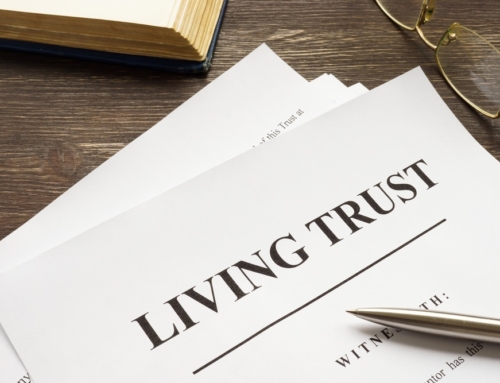Home Affordability And Stability Plan: Readers Respond
Rick Santelli of CNBC is up in arms. But he’s not the only one.
His recent rant about how no one wants to pay his neighbor’s mortgage is echoed in the sentiments of Americans worried about their own jobs (or lack thereof), shrinking 401(k) plans, and ballooning debt payments.
Last week, I wrote about the government’s new Home Affordability and Stability Plan. Will it help the right people? Will it help at all? Here are some reader’s reactions (edited, in some cases, for clarity and length).
Comment: I think that it is very doubtful that this very minimal effort to boost our housing market will have enough effect to make a difference. It does nothing to entice anyone other than first time buyers, who are a small percentage of buyers in the market place. And I just learned from your article that they must also remain in the house for three years! Is our government stupid? This will be a negative condition as it will mean that all those homes will not resale for at least 3 years. What does this do to stimulate the real estate/housing market?
I think there should be some substantial incentives for everyone who is a potential buyer! Repeal the capital gains tax, at least for a period of time. We desperately need the [real estate] investors to get back in the game! If the housing market takes years to turn around, I don’t see how any other aspects of business can expect to prosper.
It is a big domino effect when a home sells: You employ the Realtor (or two), appraiser, closing attorney, surveyor, home inspector, termite company, in many cases a home warranty company, and contractors who are hired to do the repairs noted on the home inspection report. It is amazing to me that U.S. Sen. Johnny Isakson’s $15,000 tax-credit proposal did not pass. That would have been something that would really encourage all buyers to make a purchase.
It occurred to me that these foreclosed homes that are sitting with no heat or air conditioning will inevitably develop problems with mold. What will we do then? Hire companies with taxpayers’ money to remove the mold (this is very costly)? Or hire someone to tear them down?
The way our president and Congress are handling this is very disappointing, and really a joke!
Ilyce: The writer signed herself as a “self-employed (unemployed) Realtor” which is unfortunately how many real estate agents feel at the moment. It’s a great point about the foreclosures sitting vacant and possibly growing mold. In many municipalities, lenders and servicers are being fined if they do not maintain these properties and keep them from becoming a blight on the neighborhood.
Comment: You stated in your article that the $8,000 tax credit for purchasing a primary residence was only for first-time homebuyers. The person that intended on buying a home was a transferee (who had a home to sell). The fact that she has a home already makes her not a first-time home buyer. Therefore, she does not get the $8,000!
Ilyce: This is true. The $8,000 tax credit is only for first-time buyers. The woman in question currently owns a home in Atlanta and would not be eligible. Her question came to me when the Senate was considering a tax credit of $15,000 and available to all home buyers, not just first-time buyers.
Personally, I’d like to have seen every buyer qualify for the tax credit, even at the $8,000 level. Also, it appears that if you buy a home in 2008 and opt to take the tax credit on your 2008 return, you will be able to get the full $8,000 tax credit, and not the $7,500 we reported earlier. New guidance just released from the IRS has cleared up the issue of the missing $500.
Comment: It is so nice to hear and read about the nice credits for first-time home buyers, and now help for folks in foreclosure, and more unemployment benefits, etc. What about us whose homes have been devalued because of the foreclosures? There doesn’t seem to be any benefits for those of us who are still keeping up our payments and paying the interest at the higher valued price.
Ilyce: The Home Affordability and Stability Plan has changed the rules for refinancing. You’ll be allowed to refinance at lower rates even if your first mortgage is 105 percent of the value of your home. (If you have a second mortgage, you’ll have to get the home equity lender to sign a subordination agreement). You’ll be allowed to do this even if you pay your mortgage on time, and my understanding is that there will be no costs to the refinance.
But you’re right. These loans will not generally write down the principal balance owed on the loan (although there are incentives for lenders to make these loans affordable and keep them at a level so that homeowners will pay them on time for years). They’re designed to help out people who might have had the equity in their property evaporate as the valuations fell.
Comment: What about us folks who have been struggling for at least 10 years to keep our heads above water. We watch what we spend, but sometimes we screw up and buy more than we really need. We work hard on our credit scores to keep them high.
Now, we have to work even harder (I don’t know if I can work 20 hours daily), to pay for the people who didn’t watch their spending (i.e., The Jones’, and our own government). Where is our help? Do we just lie down and start using the government like everyone else? Even with all the technology we have today to keep people alive longer, I really feel over the next 10 years much younger people will start dying. Do you have any idea on what we should do?
Ilyce: There’s no question that some people who don’t deserve the assistance will get thrown a lifeline with the Homeowner Affordability and Stability Plan. But there could be a massive public benefit to helping a larger number of people more quickly. If you help markets find a floor by simultaneously helping people find jobs and giving them a way to spend less on their mortgage each month (by lowering the interest rate), all neighborhoods would benefit. Right now, it’s just theory and a few incredibly complex math formulas.
Unfortunately, I don’t know how you separate the milk from the cream when millions of loans are involved.
Comment: Regarding the first-time buyer home buyer tax credit. When you talk about dollar-for-dollar reduction in the taxes you owe, are you referring to property taxes or income taxes?
Ilyce: According to the White House, the refundable tax credit is taken on your federal income tax returns, and you will receive the money even if you don’t pay $8,000 in taxes. If you owe $10,000 in federal income taxes and are eligible for the first-time home buyer tax credit, you would only owe the IRS $2,000.
Feb. 27, 2009






Leave A Comment